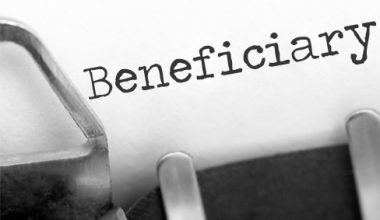Do you ever feel as if the journey to meet all of your insurance requirements never ends? With the need for policies for your home, health, car, life, and countless others, just mentioning them is exhausting!
But here’s something to cheer you up: Did you know that by being self-insured, you can be your own insurance provider? Yes, in some situations! There will be no more needless insurance premiums—just you, your money and assets, and a lot of peace of mind.
So, how can one become self-insured? Is self-insurance always the best option for every insurance need? Continue reading…
What Is Self-Insurance?
Self-insurance entails saving your own money to cover a potential loss rather than acquiring insurance and expecting an insurance company to repay you. Instead of filing a claim under your policy with an insurance company, you pay for a cost such as a medical procedure, water damage, theft, or a fender bender out of your own cash with self-insurance.
Understanding Self Insurance
Insurance is intended to protect you against financial losses you cannot afford, but for losses you can afford, self-insurance can save you money because you are not paying insurance premiums. When choosing self-insurance, you must compare the certainty of spending money on premiums against the potential of experiencing a loss for which you will not be able to seek compensation from insurance.
Without even realizing it, you are probably already self-insured for certain things. When you select your deductible on an insurance policy, you are essentially self-insuring for the deductible amount. You select an amount of risk that you are willing to pay for out of pocket, such as $1,000 or $5,000. Another instance of self-insurance is when customers refuse extended warranties.
While a warranty is not technically insurance, it is similar in that it covers the costs of a calamitous event. However, because the majority of individuals can afford to replace or repair things such as televisions and computers, they avoid longer warranties and instead self-insure.
Is Self-Insurance Necessary for the Self-Employed?
People frequently mix self-employment with self-insurance. That is understandable! The thinking appears to be, Hey, I’m suddenly self-employed. Without employee coverage, I suppose I’ll have to cover every risk out of my own pocket.
Slow down, business owner. Although the terms sound similar, they are not the same. And, while being self-employed frequently entails purchasing your own insurance (rather than receiving coverage via your employer benefits), this is not the same as having enough money to cover every risk in life. For example, don’t conflate self-employed health insurance (which you must require) with “I’m self-employed, so I can skip medical coverage.” That assumption could place you in serious medical debt, as well as wreck your business and finances.
Which Types of Insurance Should I Not Self-Insure?
You should always have the following forms of insurance in place:
#1. Car Insurance
Car insurance is required by law in almost every state. As a result, if you don’t have car insurance, you’re breaching the law. However, the main purpose to obtain automobile insurance is to protect yourself in the event of an accident and to safeguard your cash in the event of high legal fees from anyone who wishes to sue you.
#2. Homeowners Insurance
Home insurance is essential, but it is difficult to self-insure. The costs of repairing or rebuilding your home after a fire or flood would be out of this world! (Heh.) Your home is an asset that you should protect with home insurance. Also, don’t forget: Many home insurance policies include legal liability coverage in the event that someone is injured in your home and decides to sue.
#3. Health Coverage
Once upon a time, everyone was required to have a specific level of health insurance coverage under the Affordable Care Act. This requirement is no longer in existence, but that is no reason to forego health insurance coverage. We’ll repeat it again for good measure: Never attempt to self-insure for health insurance. You need health insurance because if you require treatment for any significant health issue (or even small ones), the medical expenditures could soon become unmanageable if you do not have coverage.
When Should I Consider Self-Insurance?
We believe that you should constantly strive to self-insure your life insurance. Life insurance’s sole purpose is to replace your income if you die unexpectedly. You can self-insure your income if you’re out of debt and investing like a pro. This one is correct!
What are the Benefits of Self-Insuring Life Insurance?
You will save money in various ways if you can self-insure for life insurance.
#1. Your premiums will be lower each year.
You are not paying an insurance company every year to incur the risk of replacing your income if something occurs to you if you are self-insured. You will gain much from this because you will save money! And we’re all for saving money anywhere we can, especially when it comes to insurance rates.
#2. You will have extra capital to invest.
Saving money on life insurance premiums means having more money to invest. And if they’re good assets (such as a mutual fund), even better!
#3. You have the option of increasing your deductibles.
Being self-insured allows you to feel comfortable raising the deductibles on insurance policies you can’t avoid, such as auto, house, and health insurance. A higher deductible typically lowers your rate since you share a greater portion of the cost of any claims with your insurance carrier.
What Is the Process of Self-Insured Life Insurance?
When it comes to life insurance, being self-insured means having enough money in the bank to replace your income and provide for your loved ones when you die. Your dependents will no longer have to worry about paying bills, putting food on the table, or anything else that relied on your income.
Before we proceed any further, please understand that this is not about making them wealthy! Self-insurance is the process of becoming your own insurance provider. How? Assume you have a 20-year term life insurance policy (the only type of life insurance we suggest).
If you work hard for those 20 years to pay off debt and invest, you’ll be debt-free and have enough in savings, investments, and assets to assure your family can live off the income they generate if you die. You would no longer need to pay for life insurance because you would be self-insured. Consider how it might feel! Isn’t that fantastic?
Read Also: How Much Life Insurance Do I Need? (Detailed Guide)
Here’s how you’ll know when you’ve reached the point of self-insurance. The debt-free component is self-evident—no payments. (Yes, it’s a fantastic way to live.) When it comes to the income created by your savings, investments, and assets, you have three (or possibly four) stages to take to see if you’re there.
- Make a list of your annual earnings.
- Consider how much ROI you’re currently getting on everything.
- Congratulations if your ROI exceeds your income! It’s time to say goodbye to that life insurance policy.
- However, if your ROI remains less than your annual income, keep the insurance in place until you reach the self-insured sweet spot.
But how does this translate into numbers? Consider some examples.
| Annual income | How much to aim for in savings/investments | How much a 10% annual return will generate |
| $50,000 | $500,000 | $50,000 |
Now consider someone with a larger income.
| Annual income | How much to aim for in savings/investments | How much a 10% annual return will generate |
| $80,000 | $800,000 | $80,000 |
Don’t worry if those savings figures make you nervous—the stage of life your family is in makes a major difference in how much you need to become self-insured. If your children have left home and no longer rely on your income (and you’re entirely debt-free), your spouse won’t require as much.
When Should I Self-Insure For Life Insurance?
As previously said, the timing of this will be determined by your age and stage of life.
Some people carry life insurance even if they have a lot of savings because they appreciate the extra security! Tony H. was the same way. “As we approached retirement, I had $350,000 and my wife had $100,000.” Even after we had enough money to be self-insured, we kept those plans for a few years. They were reasonably priced and gave a little additional padding.” They revoked their policies when Tony’s term expired. That’s yet another technique to keep everyone safe!
Special Considerations
Self-insurance only makes sense if you are affluent for really expensive risks. Few people, for example, prefer to self-insure their homes. For example, if you have a mortgage, your lender will require that you get homeowners insurance.
Even if your house is paid off, you generally don’t want to chance to have to pay out of pocket to replace it totally if it burns down. If your net worth is high in relation to the value of your home and you aren’t afraid of taking risks, it might make more sense to skip insurance, save the few hundred dollars it would cost you each year, and retain money set aside in the unlikely event that you need to rebuild.
If you’re going to self-insure, it’s critical to comprehend the worst-case situation so you’re financially prepared. So, if the danger is too high, you could consider keeping insurance but with a very high deductible.
Example of Self-Insurance: Health Insurance in the United States
In the United States, self-insurance is most commonly associated with health insurance and may involve, for example, an employer providing specific benefits to employees, such as health or disability benefits, and covering claims from a designated pool of assets rather than via an insurance company. When health care is self-funded, the employer ultimately bears the complete risk of paying claims, but when insurance is used, all risk is shifted to the insurer.
Why Do Employers Choose To Self-fund Their Healthcare Plans?
Employers often pick the self-insurance option for a variety of reasons. The most common reasons are as follows:
- Rather than obtaining ‘one-size-fits-all’ insurance coverage, the employer can customize the plan to match the individual healthcare needs of its workers.
- The employer retains control over the health plan reserves, allowing for the maximizing of interest revenue – income that an insurance carrier would ordinarily obtain through the investment of premium monies.
- The employer does not have to pre-pay for coverage, which improves cash flow.
- Because self-insured health plans are governed by federal law (ERISA), the employer is not subject to conflicting state health insurance regulations/benefit mandates.
- The employer is exempt from state health insurance premium taxes, which are typically 2% to 3% of the premium’s dollar value.
- The employer is free to contract with the providers or provider network best suited to satisfy its employees’ health care requirements.
Is Self-Insurance Always the Best Solution for Employers?
No. Because a self-insured employer takes the risk of paying health care claim costs for its employees, it must have the financial resources (cash flow) to meet this uncertain commitment.
As a result, small businesses and other employers with limited cash flow may discover that self-insurance is not a viable alternative. However, it should be highlighted that enterprises with as few as 25 employees can retain successful self-insured health plans.
Can Self-Insured Enterprises Protect Themselves From Unanticipated or Catastrophic Claims?
Yes. While the largest firms have enough cash reserves to handle almost any amount of health care costs, most self-insured employers obtain stop-loss insurance to reimburse them for claims exceeding a certain dollar threshold. This is a contract between the stop-loss carrier and the employer, not a health insurance policy that covers individual plan participants.
Who Is in Charge of Claims Administration for Self-Insured Group Health Plans?
Self-insured employers can handle claims in-house or outsource the task to a third-party administrator (TPA). TPAs can also assist companies in the setup of self-insured group health plans, as well as in the coordination of stop-loss insurance coverage, provider network contracts, and usage review services.
- AVERAGE COST FOR BUSINESS INSURANCE IN 2023
- SMALL BUSINESS EMPLOYEE BENEFITS: Free Benefit and All You Need to Know
- Risk Retention: Risk Retention Groups & Examples
- JOB BENEFITS: What Is It & What You Should Know






